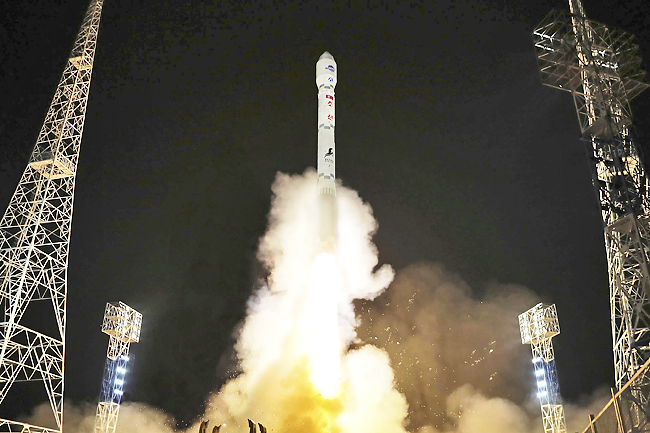SEOUL (AP) – The national security advisers of the United States (US), South Korea and Japan yesterdaycalled for a stronger international push to suppress North Korea’s development of nuclear weapons and missiles, its cybertheft activities and alleged arms transfers to Russia.
The meeting in Seoul came as tensions on the Korean Peninsula are at their highest in years, with North Korean leader Kim Jong Un accelerating the expansion of his nuclear and missile program and flaunting an escalatory nuclear doctrine that authorizes the preemptive use of nuclear weapons.
The US and its Asian allies have responded by increasing the visibility of their trilateral partnership in the region and strengthening their combined military exercises, which Kim condemns as invasion rehearsals.
Washington, Seoul and Tokyo have also expressed concerns about a potential arms alignment between North Korea and Russia.
Speaking after the meeting, US national security adviser Jake Sullivan said Washington is working with Seoul and Tokyo to strengthen defence cooperation and improve its response to North Korean missile testing and space-launch activities, including a real-time information sharing arrangement on North Korean missile launches that the countries plan to start at an unspecified date in December.
He also said the countries have agreed to new initiatives to more effectively respond to North Korean efforts to bypass US-led international sanctions that aim to choke off funds for its nuclear weapons and missile programme.
“This will be a new effort with respect to cryptocurrency and money laundering and how we disrupt North Korea’s capacity to gain revenue from the hacking and stealing of cryptocurrency and then laundering it through exchanges,” he said.
Sullivan declined to share detailed US assessments on the types and volume of North Korean arms being shipped to Russia and didn’t comment on the specifics of his discussions with South Korean and Japanese officials over the issue, but insisted that “there’s no daylight among us in terms of the types of weapons transfers that we are seeing. And those continue and they represent a grave concern for us.”





